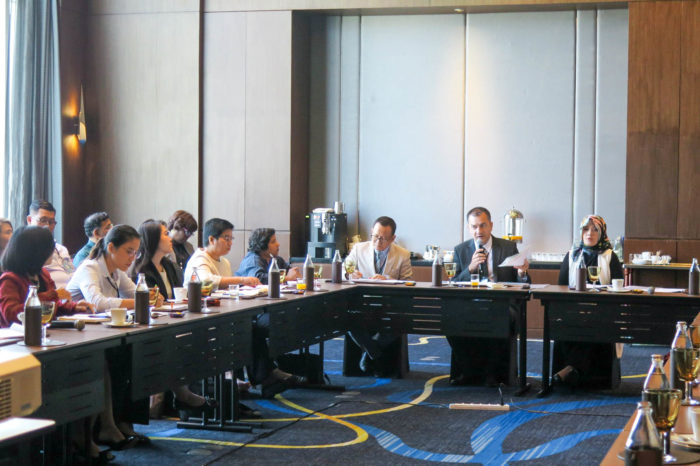
News & Events
Building Partnerships to Promote a Healthy Asia
Asia is facing a growing burden of malnutrition, increasing obesity rates, staggering prevalence of undernutrition, and micronutrient deficiencies in both rural and urban communities, despite significant economic growth in the region. While these lifestyle diseases are influenced by a variety of factors, a multi-faceted approach is needed to change health behaviours of the population.
As policy pressures are mounting to drive health and wellness in Asia, multi-stakeholder partnerships to share knowledge, expertise, technology and financial resources, are imperative to develop localised solutions for these health challenges. This would enable a positive change in consumer behaviour at a quicker rate through the scaling up of intervention programmes and expanding community outreach.
On 29 November 2018, ARoFIIN in collaboration with the International Food Policy Research Institute (IFPRI) and the Food and Agriculture Organisation of the United Nations (FAO) gathered several global and regional leaders to address the importance of working collectively to implement country-level initiatives in response to the growing health challenges, encouraging healthier lifestyles in the community; beginning with young children who are “tomorrow’s agents for change.
Professor Visith Chavisit, Mahidol University and Ms Diandra Pratami of the World Food Programme were joined by Mr Steven Bartholomeusz, Food Industry Asia who moderated the discussion that sought to understand the barriers and opportunities in undertaking localised, multi-stakeholder efforts to end malnutrition in Asia.

Mr Steven Bartholomeusz (centre) moderating the expert panel discussion with Ms Diandra Pratami (right) and Professor Visith Chavasit (left) on the barriers and opportunities on engaging in multi-stakeholder efforts
Differences in culture, economic growth, political structures and lifestyle mean that solutions have to be tailored to the needs of countries in order to thrive and to encourage the adoption of healthier lifestyles. ARoFIIN held a series of workshops in Malaysia, Thailand, Indonesia and the Philippines between September and December 2017, to identify targeted interventions to tackle obesity in the region.
Each country proposed a unique solution adapted to its respective social and cultural situation, understanding that a “one-size-fits-all” approach would not sufficiently address such a multi-factorial problem such as obesity. As such, looking at localised solutions will amplify the reach of efforts taken to end malnutrition in the region.
A coherent cross-sectoral approach can scale up efforts and accelerate actions to end malnutrition across Asia. Such partnerships bridge the knowledge gaps among sectors, offering a space to exchange experiences and disseminate information. While public-private partnerships can be effective responses to issues like malnutrition that require expertise and resources from multiple sectors, tension may arise between profit motives and public health goals. Having high-level multi-stakeholder engagements that enables and open and honest dialogue can enhance the understanding of each sector’s roles and responsibilities, which is crucial in fostering trust between stakeholders.
Making up ground towards meeting the goal of Zero Hunger requires collective action across the region. It is incumbent upon all of us – national governments, organisations and individuals – to work together through a

